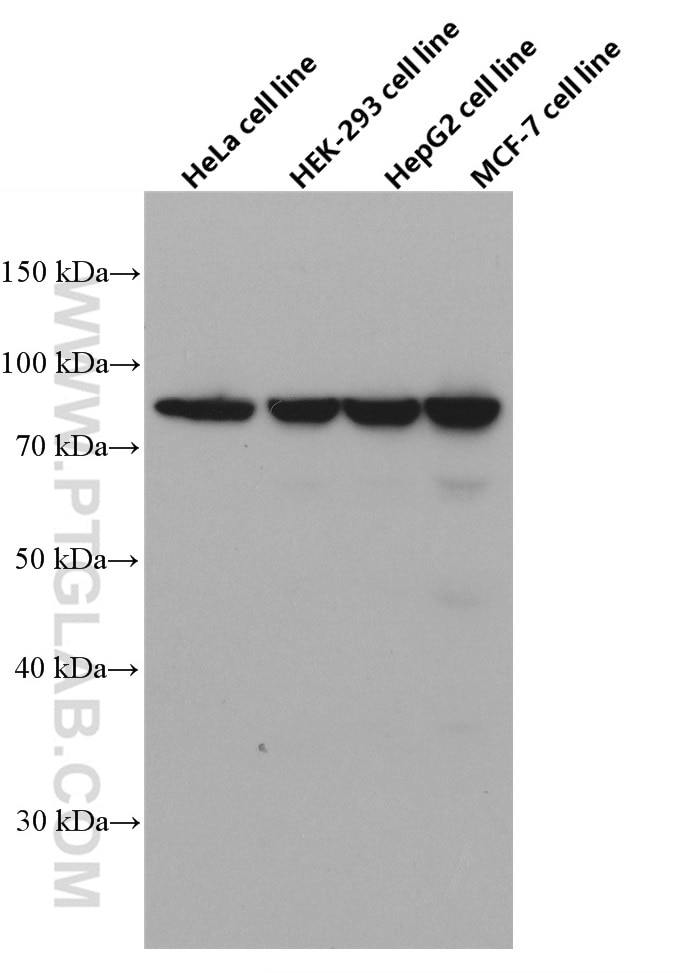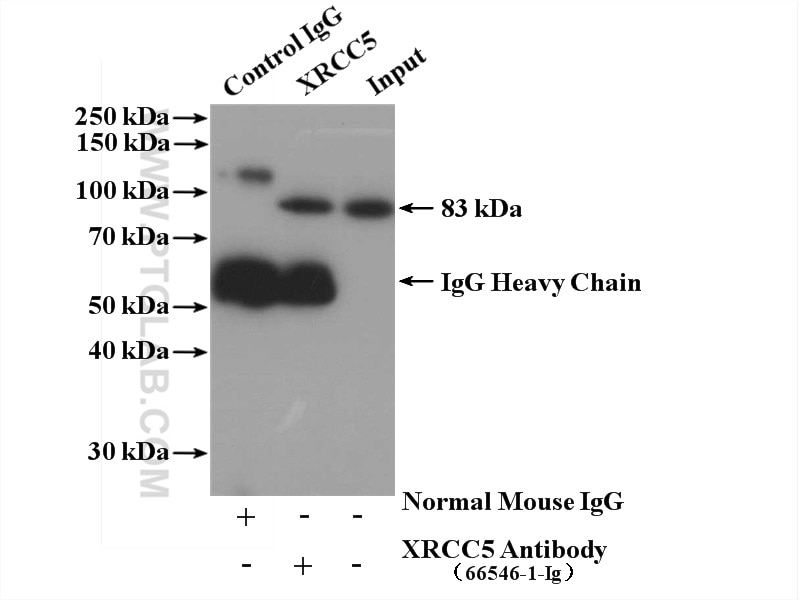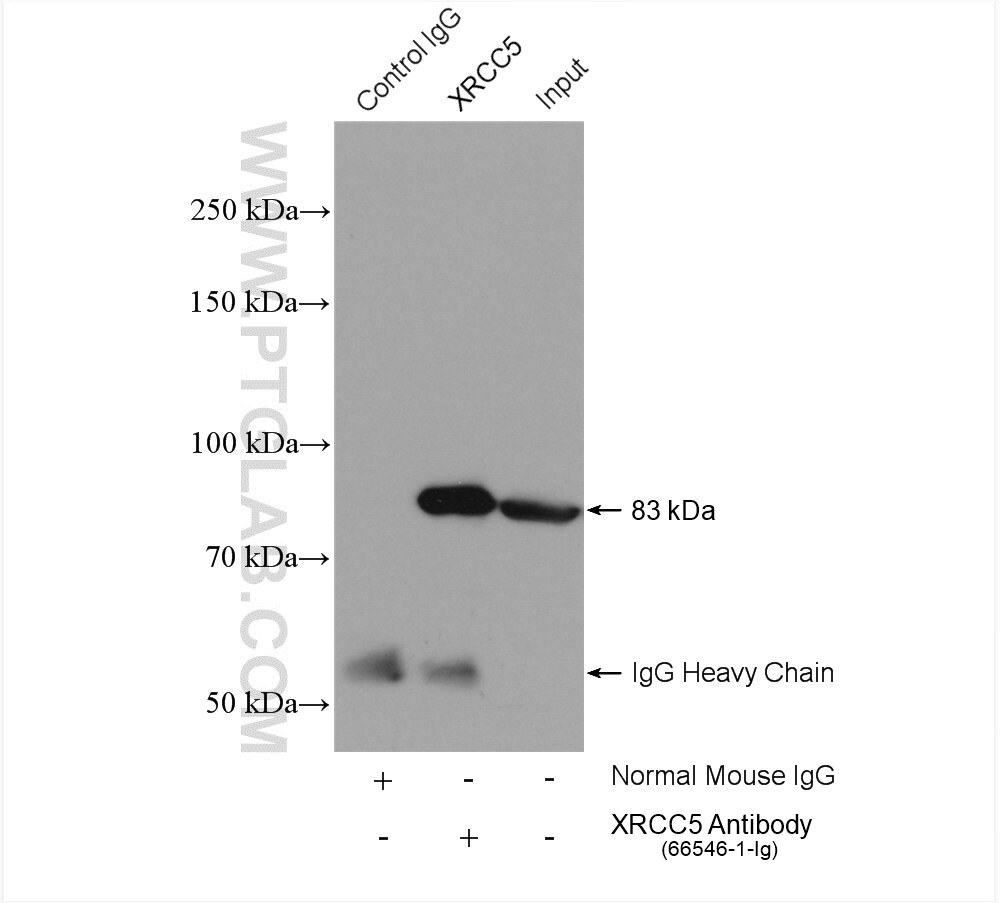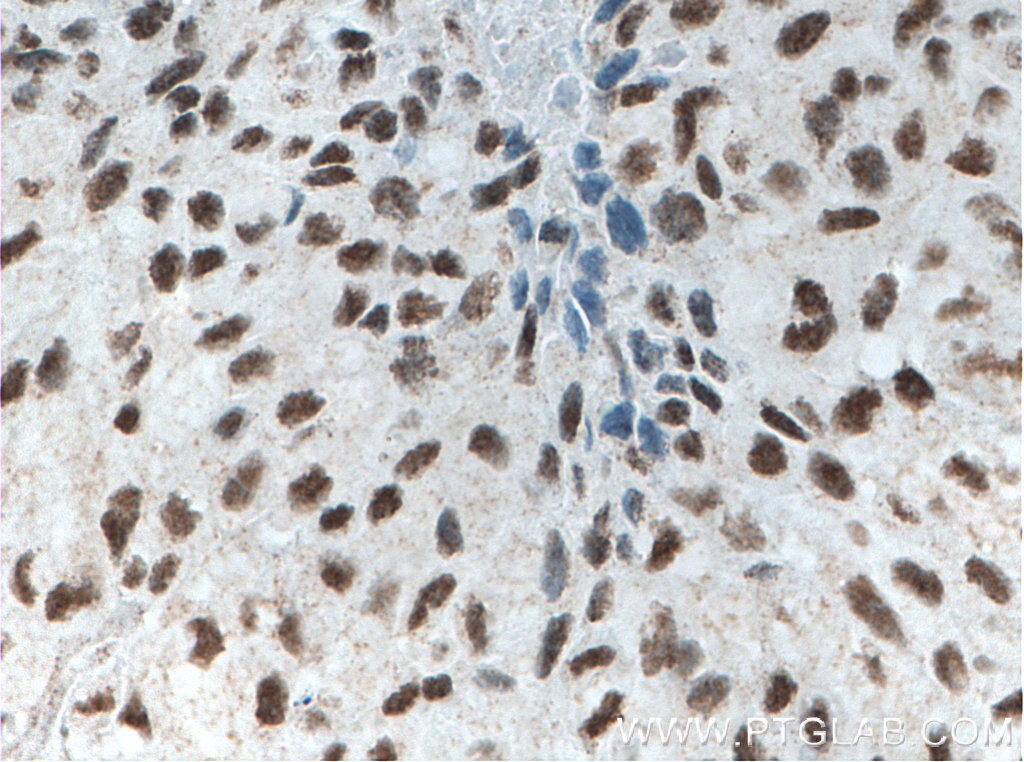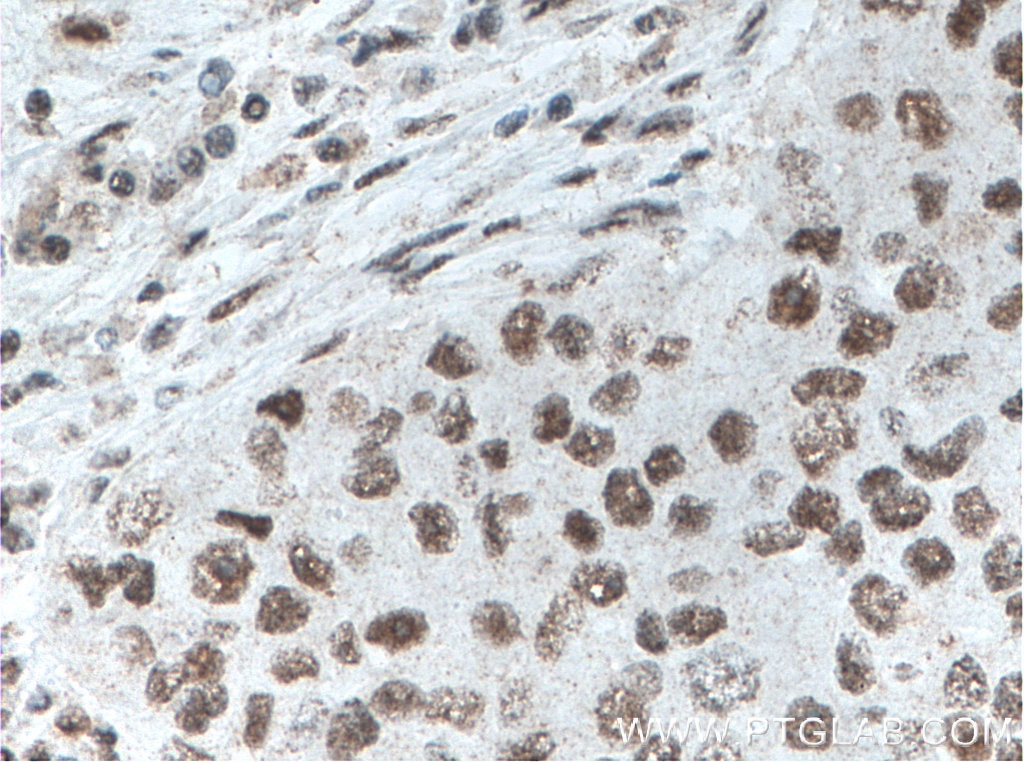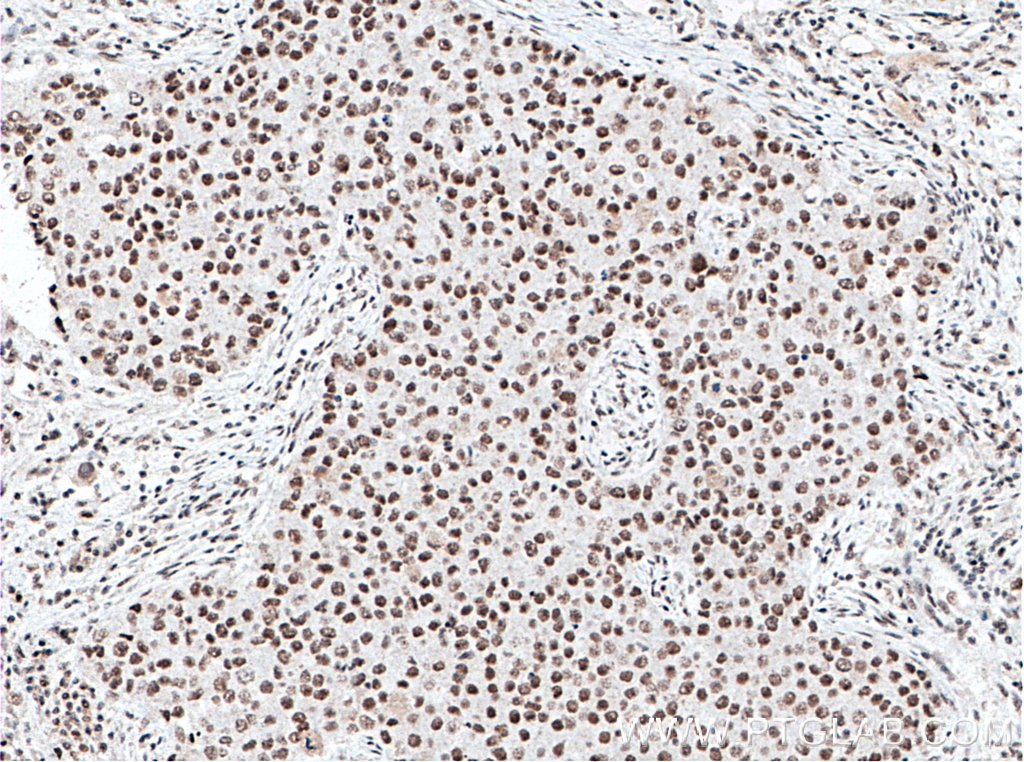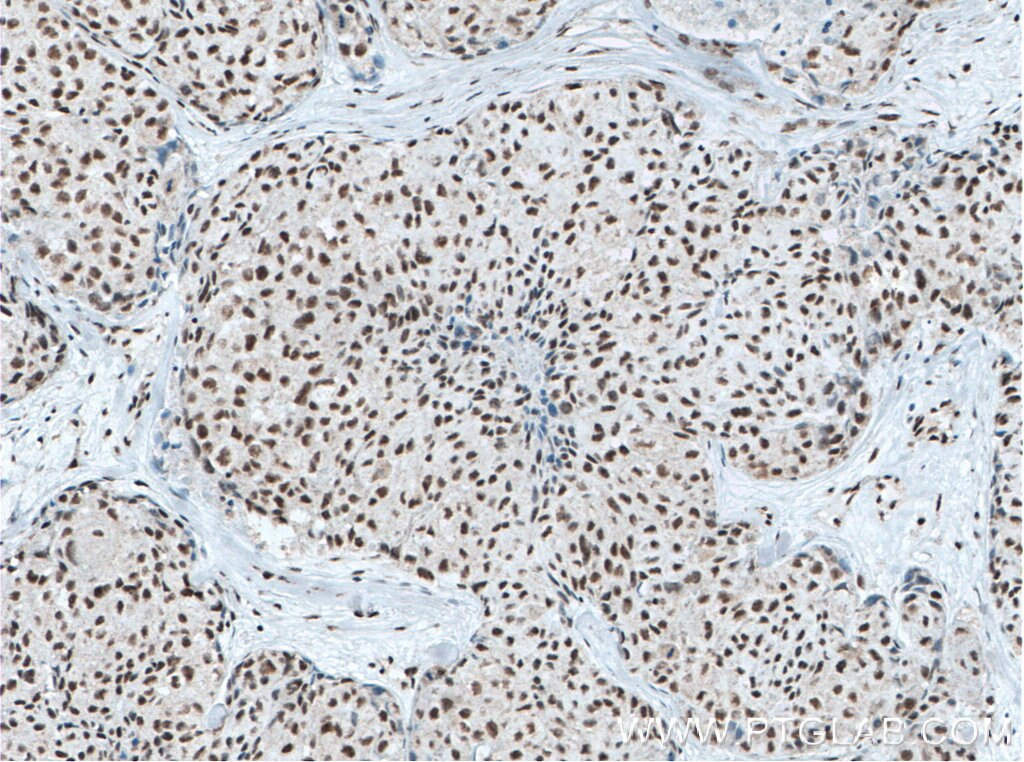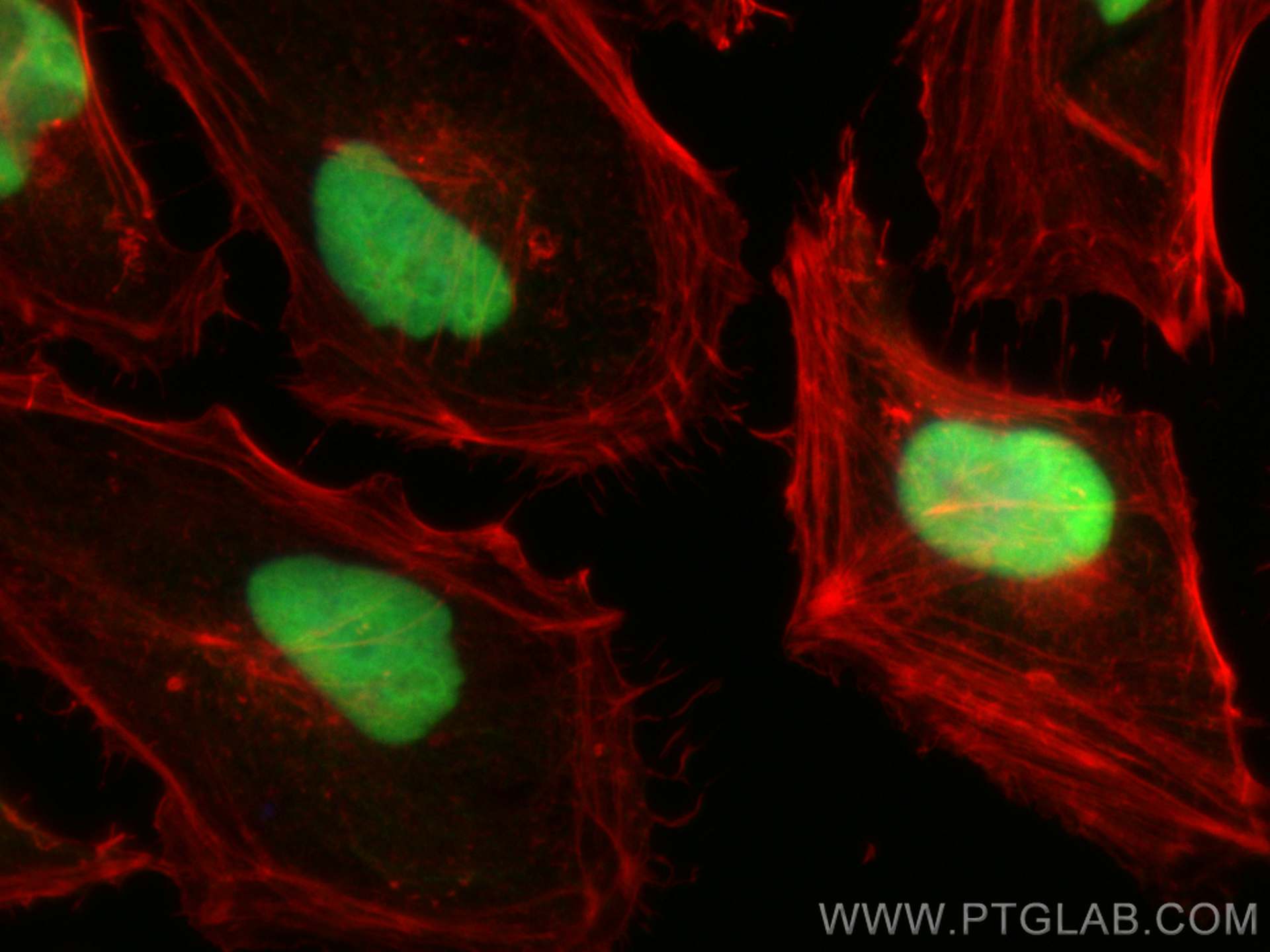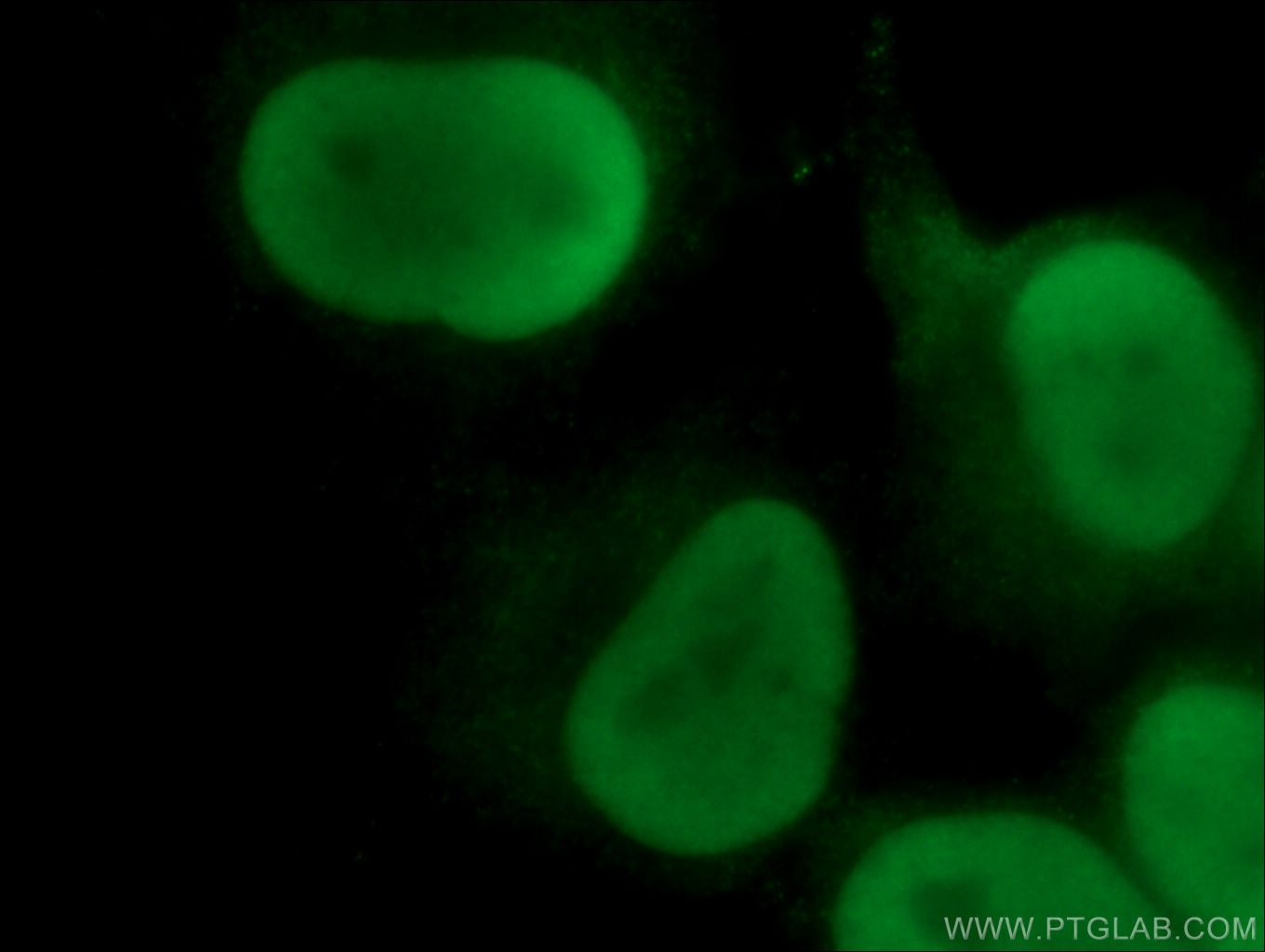Validation Data Gallery
Tested Applications
Recommended dilution
| Application | Dilution |
|---|---|
| It is recommended that this reagent should be titrated in each testing system to obtain optimal results. | |
Product Information
66546-1-PBS targets XRCC5/Ku80 in WB, IHC, IF/ICC, IP, Indirect ELISA applications and shows reactivity with human, mouse, rat samples.
| Tested Reactivity | human, mouse, rat |
| Host / Isotype | Mouse / IgG1 |
| Class | Monoclonal |
| Type | Antibody |
| Immunogen |
CatNo: Ag9512 Product name: Recombinant human XRCC5 protein Source: e coli.-derived, PET28a Tag: 6*His Domain: 384-732 aa of BC019027 Sequence: LDDLDMVAIVRYAYDKRANPQVGVAFPHIKHNYECLVYVQLPFMEDLRQYMFSSLKNSKKYAPTEAQLNAVDALIDSMSLAKKDEKTDTLEDLFPTTKIPNPRFQRLFQCLLHRALHPREPLPPIQQHIWNMLNPPAEVTTKSQIPLSKIKTLFPLIEAKKKDQVTAQEIFQDNHEDGPTAKKLKTEQGGAHFSVSSLAEGSVTSVGSVNPAENFRVLVKQKKASFEEASNQLINHIEQFLDTNETPYFMKSIDCIRAFREEAIKFSEEQRFNNFLKALQEKVEIKQLNHFWEIVVQDGITLITKEEASGSSVTAEEAKKFLAPKDKPSGDTAAVFEEGGDVDDLLDMI 相同性解析による交差性が予測される生物種 |
| Full Name | X-ray repair complementing defective repair in Chinese hamster cells 5 (double-strand-break rejoining) |
| Calculated molecular weight | 732 aa, 83 kDa |
| Observed molecular weight | 80-83 kDa |
| GenBank accession number | BC019027 |
| Gene Symbol | XRCC5 |
| Gene ID (NCBI) | 7520 |
| RRID | AB_2881908 |
| Conjugate | Unconjugated |
| Form | |
| Form | Liquid |
| Purification Method | Protein G purification |
| UNIPROT ID | P13010 |
| Storage Buffer | PBS only{{ptg:BufferTemp}}7.3 |
| Storage Conditions | Store at -80°C. |
Background Information
There are at least two pathways for eukaryotes to repair DNA double-strand breaks: homologous recombination and nonhomologous end joining(NHEJ). The core NHEJ machinery includes XRCC4, DNA ligase IV and the DNA-dependent protein kinase complex, which consists of the DNA end-binding XRCC5/XRCC6 heterodimer and the catalytic subunit PRKDC. The heterdimer of XRCC5/XRCC6 enhanced teh affinity of the catalytic subunit PRKDC to DNA by 100-fold. Once the XRCC5/6 dimer association with NAA15, it can bind to the osteocalcin promoter and activate osteocalcin expression. The XRCC5/6 dimer acts as a negative regulator of transcription when together with APEX1. Some publised papers indicated that the MW of XRCC5 is 86kDa, while more papers suggested that XRCC5 is a 80kDa protein, as it was firstly introducted in publication. Thus, Ku80 and Ku86 are the same protein.

